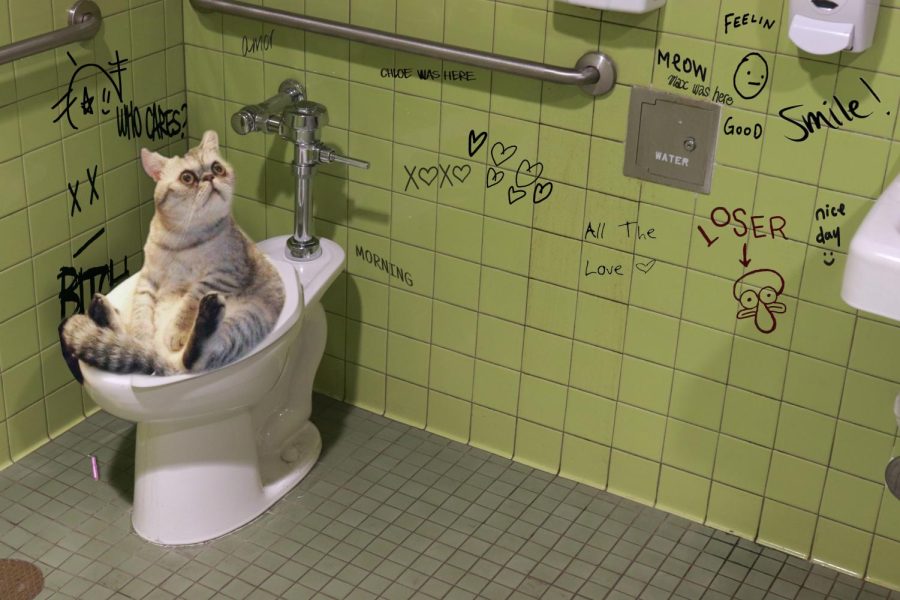Each person has their own individual idea about Don’t flush cat feces down the toilet.
Introduction
As pet cat owners, it's essential to be mindful of exactly how we get rid of our feline friends' waste. While it may appear convenient to purge cat poop down the bathroom, this practice can have detrimental consequences for both the setting and human wellness.
Alternatives to Flushing
Fortunately, there are more secure and much more liable methods to take care of pet cat poop. Take into consideration the adhering to alternatives:
1. Scoop and Dispose in Trash
One of the most common method of dealing with feline poop is to scoop it into a biodegradable bag and throw it in the garbage. Be sure to use a devoted trash scoop and take care of the waste immediately.
2. Use Biodegradable Litter
Go with naturally degradable feline litter made from products such as corn or wheat. These litters are environmentally friendly and can be securely thrown away in the trash.
3. Bury in the Yard
If you have a backyard, think about hiding pet cat waste in a designated location far from vegetable gardens and water sources. Make certain to dig deep enough to stop contamination of groundwater.
4. Set Up a Pet Waste Disposal System
Buy an animal waste disposal system specifically created for cat waste. These systems use enzymes to break down the waste, minimizing odor and ecological effect.
Health and wellness Risks
Along with environmental problems, purging feline waste can additionally posture wellness dangers to people. Feline feces may include Toxoplasma gondii, a parasite that can create toxoplasmosis-- a possibly serious health problem, specifically for expecting females and people with damaged body immune systems.
Ecological Impact
Purging pet cat poop presents harmful pathogens and parasites into the water, posing a substantial threat to marine environments. These impurities can negatively affect aquatic life and concession water top quality.
Conclusion
Responsible pet dog ownership prolongs past offering food and shelter-- it also includes correct waste administration. By refraining from purging feline poop down the bathroom and opting for alternative disposal approaches, we can minimize our environmental footprint and protect human health.
Why Can’t I Flush Cat Poop?
It Spreads a Parasite
Cats are frequently infected with a parasite called toxoplasma gondii. The parasite causes an infection called toxoplasmosis. It is usually harmless to cats. The parasite only uses cat poop as a host for its eggs. Otherwise, the cat’s immune system usually keeps the infection at low enough levels to maintain its own health. But it does not stop the develop of eggs. These eggs are tiny and surprisingly tough. They may survive for a year before they begin to grow. But that’s the problem.
Our wastewater system is not designed to deal with toxoplasmosis eggs. Instead, most eggs will flush from your toilet into sewers and wastewater management plants. After the sewage is treated for many other harmful things in it, it is typically released into local rivers, lakes, or oceans. Here, the toxoplasmosis eggs can find new hosts, including starfish, crabs, otters, and many other wildlife. For many, this is a significant risk to their health. Toxoplasmosis can also end up infecting water sources that are important for agriculture, which means our deer, pigs, and sheep can get infected too.
Is There Risk to Humans?
There can be a risk to human life from flushing cat poop down the toilet. If you do so, the parasites from your cat’s poop can end up in shellfish, game animals, or livestock. If this meat is then served raw or undercooked, the people who eat it can get sick.
In fact, according to the CDC, 40 million people in the United States are infected with toxoplasma gondii. They get it from exposure to infected seafood, or from some kind of cat poop contamination, like drinking from a stream that is contaminated or touching anything that has come into contact with cat poop. That includes just cleaning a cat litter box.
Most people who get infected with these parasites will not develop any symptoms. However, for pregnant women or for those with compromised immune systems, the parasite can cause severe health problems.
How to Handle Cat Poop
The best way to handle cat poop is actually to clean the box more often. The eggs that the parasite sheds will not become active until one to five days after the cat poops. That means that if you clean daily, you’re much less likely to come into direct contact with infectious eggs.
That said, always dispose of cat poop in the garbage and not down the toilet. Wash your hands before and after you clean the litter box, and bring the bag of poop right outside to your garbage bins.
https://trenchlesssolutionsusa.com/why-cant-i-flush-cat-poop/

I stumbled upon that piece of writing about How to Dispose of Cat Poop and Litter Without Plastic Bags when surfing the internet. In case you appreciated our page plz be sure to pass it around. I thank you for reading our article about How to Dispose of Cat Poop and Litter Without Plastic Bags.
Rates